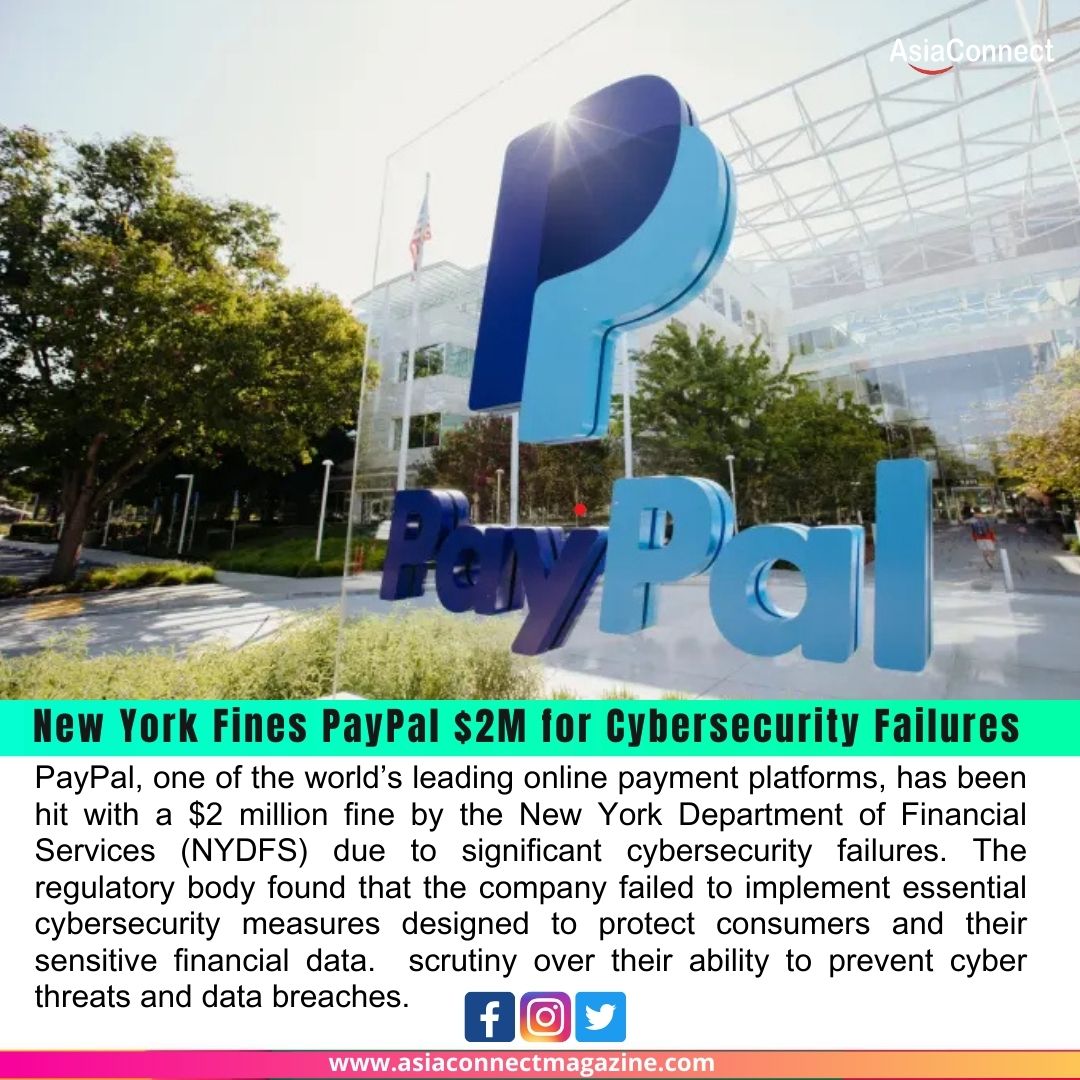Cybersecurity Lapses Lead to Significant Fine for PayPal
PayPal, one of the world’s leading online payment platforms, has been hit with a $2 million fine by the New York Department of Financial Services (NYDFS) due to significant cybersecurity failures. The regulatory body found that the company failed to implement essential cybersecurity measures designed to protect consumers and their sensitive financial data. The fine underscores the increasing emphasis on robust cybersecurity practices within the financial sector, as more financial institutions and fintech companies face scrutiny over their ability to prevent cyber threats and data breaches.
Failure to Meet Cybersecurity Standards
The investigation into PayPal’s cybersecurity practices revealed a series of shortcomings, particularly in its handling of security measures designed to protect users’ personal and financial information. According to the NYDFS, PayPal did not have adequate safeguards in place to prevent unauthorized access to customer data or respond effectively to security threats. These failures come at a time when cybersecurity is a critical priority for financial institutions and regulators, given the rising number of data breaches and cyberattacks targeting financial companies globally.
The regulatory body outlined that PayPal’s failure to comply with New York’s cybersecurity regulations could have exposed its users to serious risks, such as identity theft, fraud, and unauthorized transactions. The NYDFS also noted that the company did not implement necessary risk assessments or promptly report certain security incidents to regulators as required under New York’s stringent cybersecurity law. This lack of diligence in its cybersecurity practices led to the financial penalty.
PayPal’s Response and Commitment to Improving Security
In response to the fine, PayPal expressed regret over the issues identified by the NYDFS and affirmed its commitment to improving its cybersecurity measures moving forward. The company emphasized that it has already implemented corrective actions to address the concerns raised by the regulator, including strengthening internal processes and enhancing security protocols. PayPal also stated that it is working closely with the NYDFS and other relevant authorities to ensure that it meets the highest standards of cybersecurity compliance.
The company’s prompt response reflects an understanding of the importance of securing user data and restoring consumer confidence. With the growing number of cyber threats, PayPal’s proactive approach in addressing the issue is crucial for the long-term health of its business and maintaining its reputation as a trusted payment platform.
The Impact of the Fine on the Industry
The $2 million fine serves as a warning to other companies within the financial technology space, highlighting the need for stringent cybersecurity practices to safeguard user data. With financial services increasingly transitioning to digital platforms, regulators are becoming more vigilant in ensuring companies adhere to strict cybersecurity laws. The fine also reflects the broader trend of financial regulators holding companies accountable for failing to meet security standards, particularly when it comes to protecting consumers’ financial data.
For other fintech companies, the PayPal case serves as a reminder that non-compliance with cybersecurity regulations can lead to significant financial and reputational consequences. As cybersecurity threats evolve, companies must remain proactive in enhancing their security infrastructure to mitigate risks and comply with regulatory standards.
In conclusion, PayPal’s $2 million fine highlights the crucial role of cybersecurity in the financial sector. As digital payments continue to grow, companies must prioritize the protection of user data to maintain trust and avoid penalties from regulators.





